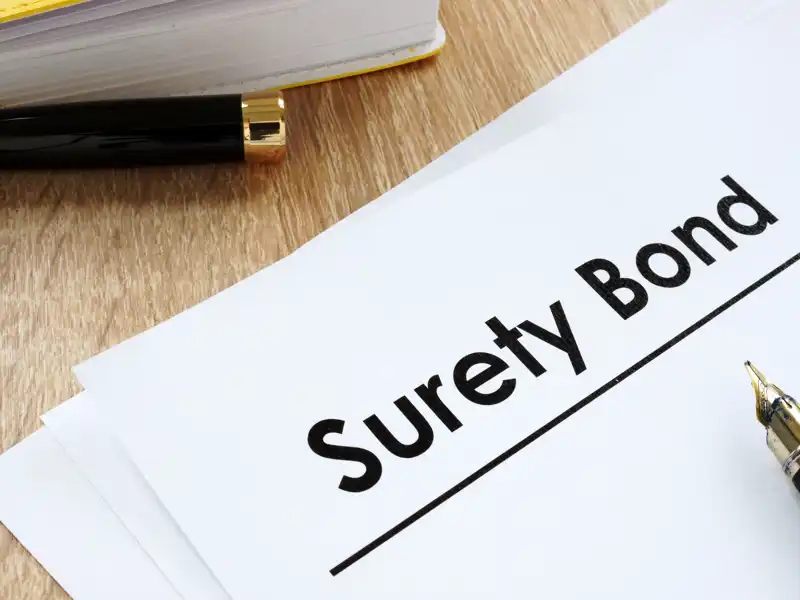Court Bond Types

Court bonds are guarantees required by courts at various points in legal proceedings to provide protection from possible loss as a result of the outcome of the proceeding.
Key Highlights
- Types of court bonds include appeal bonds, injunction bonds, probate bonds and mechanic lein bonds.
- Court bonds are required by federal, state, county or municipal courts.
How do I purchase a court bond?
NFP, the nation's largest and most reliable surety company, is authorized to issue court bonds in each of the 50 states. We can provide the best rates for your bond, as well as the fastest issuance, to get your business off and running.
Our short online application makes it easy. Click below to start the application process today.
Types of Court Bonds
Appeal bonds generally supersede or stand in place of a judgment until the court's ruling. This type of bond is also often referred to as a supersedeas bond.
Mechanic lien bonds are filed by a third party, generally for amounts due for labor and materials for renovations or construction of the real property. Until the case is decided, the owner of said property can have the lien discharged by filing the bond with the court. It could be that the owner may ultimately have to pay the claim and seek recourse against a contractor, depending on the findings of the court.
A probate bond provides a safeguard that the executor of an estate will distribute assets and property of the estate according to the wishes of the will of the deceased, or, if there is no will, in accordance with the jurisdiction's laws. If the individual is still living but is incapacitated, the surety protects the individual's assets from being misappropriated by the guardian assigned to that individual.
Injunction bonds are required by a plaintiff who is held liable for damages in the event of a false injunction. This bond generally protects the party who is wrongly accused by a plaintiff and suffers financial loss. This bond is also commonly referred to as a TRO bond or a temporary restraining order bond.
Replevin is given by a plaintiff who is claiming ownership of property in the hands of the defendant, or a legal right to possession of said belongings or property. A replevin action states a plaintiff's claim of legal right or ownership of the belongings or property and entitlement of immediate possession of the belongings in question.
Attachment can be requested by either a plaintiff or a defendant. An attachment bond can provide indemnity to a defendant against loss or damage if the court decides on the grounds that the plaintiff's claim did not exist. A defendant may request an attachment bond to discharge an attachment by filing the bond with the court in lieu of any judgment that may be rendered against them. A plaintiff may use an attachment bond to take a defendant's property into custody by court order until the trial decides the merits of the case.
Why Get Bonded Through NFP?
Fast and Easy
All Types. All States.
Surety Bond Experts
Strong Relationships
Pricing Flexibility
Explore All Surety Bonds
Browse all of our surety bonds below or connect with the expertise and guidance of one of our surety bond specialists.
Featured Bonds
Additional Commercial Surety Bonds
Featured Bonds
Additional Construction Surety Bonds
Featured Bonds
Additional License and Permit Surety Bonds
Explore All Surety Bonds
Browse all of our surety bonds below or connect with the expertise and guidance of one of our surety bond specialists.







